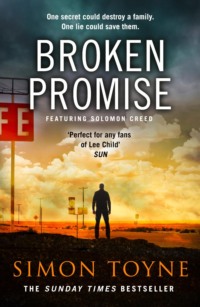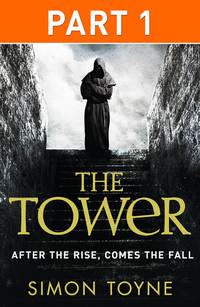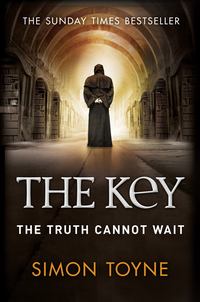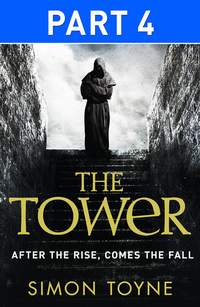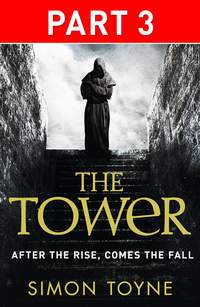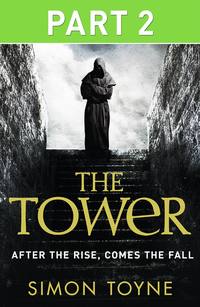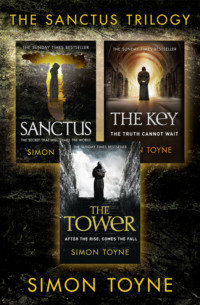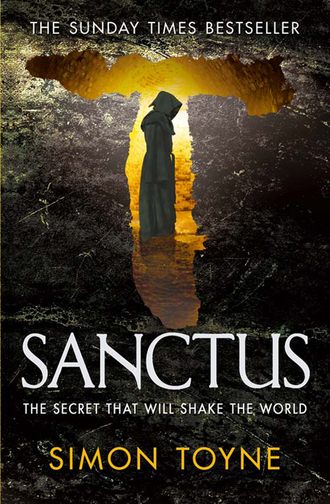
Полная версия
Sanctus
‘I think maybe the prophecy is coming true,’ he whispered. ‘I think we need to prepare.’
14
The sun was now bright over the city of Ruin. Samuel watched the shadows shorten along the eastern boulevard, all the way to the fringe of red mountains in the distance. He barely felt the pain burning in his shoulders despite the strain of holding up his already exhausted arms for so long.
For some time now he had been aware of the activity below, the gathering crowds, the arrival of TV crews. The murmur of their presence occasionally drifted up to him on the rising thermals, making them sound uncannily close. But he only thought about two things. The first was the Sacrament, the second, the face of the girl in his past. As his mind cleared of everything else, they seemed to merge into a single powerful image, one that soothed and calmed him.
He glanced now over the edge of the summit, past the overhang he’d had to scramble up what seemed like days ago. Way down to the empty moat, over a thousand feet below him.
He slipped his feet into the slits he had cut just above the hem of his cassock then hooked his thumbs through two similar loops cut in the ends of each sleeve. He shuffled his legs apart, felt the material of his habit stretch tightly across his body, felt his hands and his feet take the strain. He took one last look down. Felt the updraught from the thermals as the morning sun heated the land. Heard the babble of voices on the strengthening breeze. Focused on the spot he had picked out just past the wall where a group of tourists stood beside a tiny patch of grass.
He shifted his weight.
Tilted forward.
And launched himself.
It took him three seconds to fall the same distance it had taken him agonizing hours to climb the night before. Pain racked his exhausted arms and legs as they strained against the thick woollen material of his cassock, fighting to keep it taut against the relentless rush of air. He kept his eyes fixed on the patch of grass, willing himself towards it.
He could hear screams now through the howl of the wind in his ears and pushed down hard with both arms, increasing the resistance, trying to tilt his body upwards and correct his trajectory. He saw people scattering from the patch of ground he was heading for. It hurtled towards him. Closer now. Closer.
He felt a sharp tug at his right hand as the loop ripped apart. The sudden lack of resistance twisted and threw him into a forward spin. He reached for the flapping sleeve, pulled it taut again. The wind immediately ripped it free. He was too weak. It was too late. The spin worsened. The ground was too close. He flipped on to his back.
And landed with a sickening crump five feet past the moat wall, just short of the patch of grass, arms still outstretched, eyes staring upwards at the clear blue sky. The screams that had started as soon as he stepped off the summit now swept through the crowd. Those closest to him either turned away or looked on in fascinated horror as dark blood blossomed beneath his body, running in rivulets down fresh cracks in the sun-bleached flagstones, soaking through the green cloth of his tattered cassock, turning it a dark and sinister shade.
15
Kathryn Mann gasped as she watched it happen, live on TV. One moment the monk was standing firmly on top of the Citadel; the next he was gone. The picture jerked downwards as the cameraman tried to follow his fall then cut back to the studio where the flustered anchorman fiddled with his earpiece, struggling to fill the dead air as the shock started to register. Kathryn was already across the room, raising the binoculars to her eyes. The starkly magnified view of the empty summit and the distant wail of sirens gave her all the confirmation she needed.
She ducked back inside and grabbed the phone from the sofa, stabbing the redial button as numbness closed round her. The answer machine cut in; her father’s deep, comforting voice asked her to leave a message. She speed-dialled his mobile, wondering where he could have gone so suddenly. Mariella was obviously with him or she’d have picked up instead. The mobile connected. Cut straight to voicemail.
‘The monk has fallen,’ she said simply.
As she hung up, she realized she had tears in her eyes. She had watched and waited for the sign for so long, like generations of sentries before her. Now it seemed as if this too was just another false dawn. She took one last look at the empty summit then replaced the binoculars in the concealed cupboard and tapped a fifteen-digit sequence into the keyboard on the front of her safe. After a few seconds there was a hollow click.
A box the size of a laptop computer and about three times as thick lay behind the blast-proof titanium door, encased in moulded grey foam. Kathryn slid it free then carried it to the ottoman in front of the sofa.
The incredibly tough polycarbonate resin looked and felt like stone. She released the hidden catches holding the lid in place. Two fragments of slate lay inside, one above the other, each with faint markings etched on its surface. She looked down at the familiar pieces, carefully split from a seam by a prehistoric hand. All that remained of an ancient book, the carved symbols predated those of the Old Testament and could only hint at what else it might have contained. Its language was known as Malan, of the ancient tribe of Mala – Kathryn Mann’s ancestors. In the gloom she looked at the familiar shape the lines made.
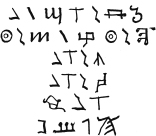
It was the sacred shape of the Tau, adopted by the Greeks as their letter ‘T’ but older than language, symbol of the sun and the most ancient of gods. To the Sumerians it was Tammuz; the Romans called it Mithras, to the Greeks it was Attis. It was a symbol so sacred it had been placed on the lips of Egyptian kings as they were initiated into the mysteries. It symbolized life, resurrection and blood sacrifice. It was the shape the monk had formed with his body as he stood on top of the Citadel for all the world to see.
She read the words now, translating them in her head, matching their meaning with the heady symbolism and the events of the past few hours.
The one true cross will appear on earth
All will see it in a single moment – all will wonder
The cross will fall
The cross will rise
To unlock the Sacrament
And bring forth a new age
Beneath this last line she could see the tips of other beheaded symbols but the jagged edge of the broken slate drew an uneven line across them, preventing further knowledge of what they might have said.
The first two lines were easy enough to reconcile.
The true sign of the cross was the sign of the Tau, older by far than the Christian cross, and it had appeared on earth the moment the monk had spread his arms.
All had seen it in a single moment via the international news networks. All had wondered because it was extraordinary and unprecedented, and no one knew what it meant.
Then she faltered. She knew the text was incomplete, but she could not see a way past what remained.
The cross had indeed fallen, as the prophecy had foretold; but the cross had been a man.
She looked beyond the window. The Citadel was about eleven hundred feet from base to peak, and he had fallen down the sheer eastern face.
How could anyone possibly rise from that?
16
Athanasius clutched the loose bundle of documents to his chest as he rapped on the gilded door of the Abbot’s chambers. There was no reply. He slipped inside and found, to his great relief, that the room was empty. It meant, for the moment at least, he did not have to converse with the Abbot about how the problem of Brother Samuel had now been solved. It had brought him no joy. Brother Samuel had been one of his closest friends before he had chosen the path of the Sancti and disappeared forever into the strictly segregated upper reaches of the mountain. And now he was dead.
He arrived at the desk and laid out the day’s business, splitting the documents into two piles. The first contained the daily updates of the internal workings of the Citadel, stock-takes of provisions and schedules of works for the constant and ongoing repairs. The second much larger pile comprised reports of the Church’s vast interests beyond the walls of the Citadel – anything from the latest discoveries at current archaeological digs worldwide; synopses of current theological papers; outlines of books that had been submitted for publication; sometimes even proposals for television programmes or documentaries. Most of this information came from various official bodies either funded or wholly owned by the Church, but some of it was gleaned by the vast network of unofficial informers who worked silently in every part of the modern establishment and were as much a part of the Citadel’s tradition and history as were the prayers and sermons that made up the devotional day.
Athanasius glanced at the top sheet. It was a report submitted by an agent called Kafziel – one of the Church’s most prolific spies. Fragments of an ancient manuscript had been discovered in the ruins of a temple at a dig in Syria and he recommended an immediate ‘A and I’ – Acquisition and Investigation to learn and neutralize any threat they may contain. Athanasius shook his head. Another piece of priceless antiquity would undoubtedly end up locked in the gloom of the great library. His feelings on this continued policy was no secret within the Citadel. He had argued, along with Brother Samuel and Father Thomas – inventor and implementer of so many improvements within the library, that the hoarding of knowledge and censorship of alternative ideas was the sign of a weak church in a modern and open world. The three of them had often talked in private of a time when the Citadel’s great repository of learning might be shared with the outside for the greater good of God and man. Then Samuel had chosen to follow the ancient and secretive path of the Sancti and Athanasius could not help but feel that all their hopes had died with him. Everything Samuel had been associated with during his life in the Citadel would now be tainted.
He felt tears prick the corners of his eyes as he looked down at the day’s documents and imagined the news they would bring in the weeks to come: endless reports regarding the monk who had fallen, and how the world perceived it. He turned and headed back to the gilded door, blotting his eyes with the back of his hand as he slipped from the Abbot’s chambers and back into the mountain labyrinth. He needed to find somewhere private, where he could allow his emotions to run free.
Head down, he marched purposefully through the crisply air-conditioned tunnels. The wide, brightly lit thoroughfares narrowed into a dimly lit staircase leading to a narrow corridor beneath the great cathedral cave, lined on each side by doors to small private chapels. At the far end of the passage a candle burned in a shallow depression cut into the rock by one such door, denoting that the room beyond it was already occupied. Athanasius stepped inside. The few votive candles that lit the interior flickered in the wash of the closing door and light shimmered across the low, soot-stained ceiling and the T-shaped cross standing on a stone shelf cut into the far wall. A man in a plain black cassock was hunched in prayer before it.
The priest began to turn, but Athanasius did not need to see his face to know who it was. He dropped to the floor beside him and gripped him in a sudden and desperate embrace, the sounds of his sobs muffled by the thick material of his companion’s robes. They held each other like this for long minutes, neither speaking, locked in grief. Finally Athanasius drew back and looked into the round white face and intelligent blue eyes of Father Thomas, his black hair receding slightly and touched with grey at the temples, his cheeks glistening with tears in the candlelight.
‘I feel like all is lost.’
‘We are still here, Brother Athanasius. And what we three discussed in this room; that is not lost.’
Athanasius managed a smile, warmed by his friend’s words.
‘And we can at least remember Samuel as he truly was,’ Father Thomas said. ‘Even if others will not.’
17
The Abbot stood in the centre of the Capelli Deus Specialis – the Chapel of God’s Holy Secret – high in the mountain. It was a small, low-ceilinged space, like a crypt, though it was so dark it was hard to make out how big it was. It had been cut by hand out of solid rock by the founders of the Citadel and remained unchanged ever since, the walls still bearing the crude marks of their primitive tools. The Abbot could smell the metallic tang of blood hanging in the air from the previous night’s ceremony, rising from grooves cut in the floor that shone wetly in the weak candlelight. He traced the channels towards the altar where the outline of the Sacrament could just be seen rising out of the darkness.
At the foot of the altar he noticed a twist of new growth curling from the rock floor, the thin tendril of a blood vine, the strange red plant that grew around the Sacrament, springing up faster than it could be rooted out. There was something about the sheer fecundity of the plant that disgusted him. He was about to move towards it when he heard the deep rumble of the huge stone door rolling open behind him. The thick air inside the chapel stirred as two people entered. The candles shuddered in their molten pools of tallow and light danced across the sharp instruments that lined the walls. The door rumbled back into place and the candle flames settled, hissing softly as tallow bubbled against hot wicks.
Both men wore the long beards and green cassocks of the Sacramental order, but there was a subtle difference in their bearing. The shorter of the two stood slightly back, his eyes fixed on the other, his hand resting on the T-shaped Crux tucked into his rope belt; the second stood with his head slightly down, eyes lowered, shoulders stooping as if the weight of the cassock itself was still too much to bear.
‘Well, Brothers?’
‘The body landed beyond the boundaries of our jurisdiction,’ the shorter monk said. ‘There was no way we could secure it.’
The Abbot closed his eyes and exhaled deeply. He had hoped the news would lift his mood, not worsen it. He opened his eyes again and regarded the Sanctus who had not yet spoken. ‘So,’ he said, in a voice that was soft yet full of threat, ‘where is he now?’
‘The city morgue.’ The monk’s eyes did not rise above the Abbot’s chest. ‘We think they are performing a post-mortem.’
‘You think they are performing a post-mortem,’ the Abbot spat. ‘Don’t think they are doing anything; know it, or say nothing. Do not come into this room and bring me your thoughts. When you come in here, you bring only the truth.’
The monk fell to his knees.
‘Forgive me, Father Abbot,’ he pleaded. ‘I have failed you.’
The Abbot looked down at him in disgust. Brother Gruber was the man who had thrown Brother Samuel into the cell from which he had subsequently escaped. It was Gruber’s fault the Sacrament had been compromised.
‘You have failed us all,’ the Abbot said.
He turned and gazed once more upon the secret of their order. He could almost feel the eyes of the world turning towards the Citadel, burning through the rock like X-rays in an unquenchable search for what lay within. He was tired from the long night’s wait, and irritable with it, and the cuts ached beneath his cassock. He’d begun to notice that, even though his ceremonial wounds healed as quickly as they always had, they pained him for longer and longer each time. Age was creeping up on him – slowly maybe, but gaining ground.
He didn’t want to be angry with the cowering monk. He just wanted this situation to pass and the fickle gaze of the world to move on to something else. The Citadel had to weather the siege, as it always had.
‘Stand up,’ he said gently.
Gruber obeyed, his eyes still lowered so he didn’t see the Abbot nod to the monk standing behind him, or the man remove his Crux and pull the top away to reveal the bright blade of the ceremonial dagger sheathed within.
‘Look at me,’ the Abbot said.
As Gruber raised his head to meet the Abbot’s gaze the monk slashed quickly across his exposed neck.
‘Knowledge is everything,’ the Abbot said, stepping back to avoid the fountain of arterial blood pumping from Gruber’s neck.
He watched the look of surprise on Gruber’s face turn to confusion as his hand fluttered up to the neat line across his throat. Saw him sink back to his knees as the life flooded out of him and into the channels in the floor.
‘Find out exactly what has happened to the body,’ the Abbot said. ‘Contact someone in the city council, or the police division, someone who has access to the information we require and is prepared to share it with us. We need to know what conclusions are being drawn about Brother Samuel’s death. We need to know where the events of this morning may be leading. And above all we need to get Brother Samuel’s body back.’
The monk stared down at Gruber, twitching feebly on the floor of the chapel, the rhythmic spurts from his neck weakening with every beat of his dying heart.
‘Of course, Brother Abbot,’ the short monk said. ‘Athanasius has already begun to deal with press enquiries through his outside intermediary. And I believe – I mean, I know there has been some contact from the police.’
The Abbot felt the muscles tighten in his jaw as he sensed the eyes of the world upon him once again.
‘Keep me informed,’ he said. ‘And send Athanasius to me.’
The monk nodded. ‘Of course, Brother Abbot,’ he said. ‘I will pass word that you wish to see him in your chambers.’
‘No.’ The Abbot stepped over to the altar and wrenched the blood vine out at the root. ‘Not there.’
He glanced up at the Sacrament. His chamberlain was not a Sanctus so did not know its identity, but if he was going to be effective in containing the current situation he needed to be more aware of what they were dealing with.
‘Get him to meet me in the great library.’ He moved towards the exit, dropping the vine on Brother Gruber’s corpse as he stepped over it. ‘He will find me in the forbidden vault.’
He grabbed a wooden stake set into the door and heaved against it. The rumble of stone over stone echoed through the chapel as the cool sweet air of the antechamber spilled through the opening. The Abbot looked back to where Gruber lay, his face pallid against a pool of blood in which the reflected candles danced.
‘And get rid of that,’ he said.
Then he turned and walked away.
18
The city coroner’s office was housed in the cellars of a stone building which had, at various periods in its history, been a gunpowder store, an ice house, a fish locker, a meat store and briefly, for a short time in the sixteenth century, a prison. Its robust security and subterranean coolness were perfect for the new department of pathology the city council decided to create at the tail end of the 1950s. Here in these retro-fitted, vaulted cellars, on the middle of three old-style ceramic post-mortem tables, the broken body of Brother Samuel now lay, starkly illuminated and under the scrutiny of two men.
The first was Dr Bartholomew Reis, the attendant pathologist, the white lab coat of his profession worn loose over the black clothes of his social tribe. He had arrived from England four years previously on an international police exchange programme, his Turkish father and dual nationality easing the paperwork. He was supposed to stay for six months, but had never quite managed to leave. His long hair was also black, thanks more to chemistry than nature, and hung on either side of his thin, pale face like a pair of partly opened curtains. Despite his sombre appearance, however, Reis was renowned throughout every division of the Ruin police force as being the most cheerful pathologist anyone had ever met. As he often said, he was thirty-two, earning good money, and while most Goths only dreamed of making a living amongst the dead, he was actually doing it.
The second man appeared much less at ease. He stood slightly behind Reis, chewing on a fruit-and-nut breakfast bar he’d found in his pocket. He was taller than Reis but looked crumpled somehow, his summer-weight grey suit hanging loosely from shoulders that drooped under the weight of nearly twenty years’ service. His thick, dark hair, shot through with silver, was pushed back from an intelligent face that managed to appear both amused and sad, a pair of half-moon tortoiseshell glasses halfway down his long, hawkish nose, completing the image of a man who looked more like a tired history professor than a Homicide detective.
Inspector Davud Arkadian was something of an oddity within the Ruin police force. His undoubted abilities should easily have raised him at this advanced stage of his career to the rank of chief inspector or beyond. Instead he’d spent the larger part of his life as a police officer watching a steady procession of lesser men get promoted above him, while he remained lumped in with the general raft of anonymous career detectives marking the days until their pensions kicked in. Arkadian was much better than that, but he’d made a choice early in his career that had cast a very long shadow over the rest of it.
What he’d done was meet a woman, fall in love and then marry her.
Being a happily married detective was rare enough, but Arkadian had met his wife while working vice as a sub-inspector. When he met his bride-to-be she was a prostitute preparing to testify against the men who had trafficked her from what was then the Eastern Bloc, then enslaved her. The first time he saw her he thought she was the bravest, the most beautiful and most scared person he’d ever met. He was detailed to look after her until the case came to trial. He often joked that he should bill for all the overtime because, twelve years later, he was still doing it. In that time he’d helped her kick the drugs they’d hooked her on, paid for her to go back to school to gain her teacher’s diploma, and restored her to the life she should have been leading in the first place. In his heart he knew it was the best thing he’d ever done, but his head also knew the price that came with it. High-ranking police officers couldn’t be married to ex-prostitutes, no matter how reformed they were. So he remained a mid-level inspector, where the public scrutiny was less, occasionally picking up a case worthy of his abilities, but often catching the tricky ones no one more senior wanted to touch.
He looked down now at the monk’s crumpled form, the lenses in his glasses magnifying his warm brown eyes as he assessed the details of the corpse. The forensics team had swept the body for trace evidence but had left it clothed. The rough green habit was dark with cold coagulated blood. The arms that had stretched out for so long making the sign of the cross were now arranged by his sides, the double loop of rope around his right wrist coiled into a neat pile by his ravaged hand. Arkadian took in the grisly scene and frowned. It wasn’t that he didn’t like autopsies – he’d certainly been to enough of them; he just wasn’t sure why he had been specifically asked to attend this one.
Reis tucked his lank black hair into a surgical cap, logged on to the computer on the mobile stand by his side and opened a new case file. ‘What do you make of the noose?’ he said.
Arkadian shrugged. ‘Maybe he was going to hang himself but decided it was too mundane.’ He launched the balled-up wrapper of his fruit bar across the room, where it bounced off the rim of the bin and skittered underneath a workbench. It was clearly going to be one of those days. His gaze flicked to a TV monitor on the far wall, tuned to a news channel and showing footage of the monk on the summit.


